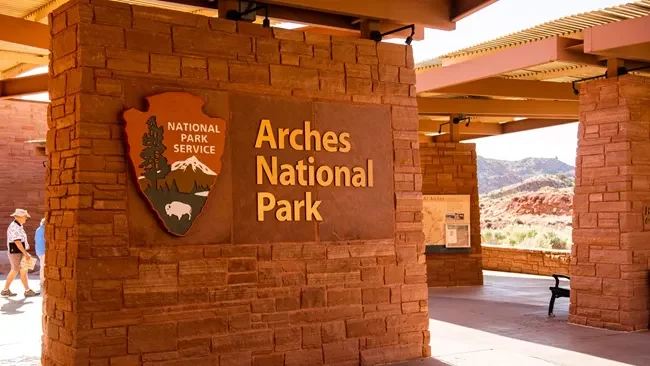Some information may be outdated.
On Tuesday, Sept. 29, Judge Don Torgerson of Utah’s Seventh District Court heard a case brought by three Grand County residents against Grand County, opposing the former County Council’s amendments to the county’s government plan. The case is the latest development in an ongoing effort to determine the structure of Grand County’s government.
Background
At a special meeting on Aug. 21, the Grand County Council followed the advice of County Attorney Christina Sloan and voted to amend the county’s optional plan to remove nonpartisan elections, term limits, and recall elections from the county government, and also to change the title of the elected body from “council” to “commission.”
According to Sloan, these actions brought Grand County’s existing form of government into compliance with Utah House Bill 224, which passed in 2018 and required all Utah counties to conform to one of four approved forms of government. The previous “council” was out of compliance; under the label of “expanded commission,” the same operating body complied with the state law.
The newly christened Grand County Commission also voted to add two new opinion questions to the ballot before the fast-approaching election day. These propositions are to follow a previously drafted opinion question on the ballot, Proposition 10, which asks voters to approve or reject a form of government recommended by a study committee. That study committee was formed in 2019 and functioned in accordance with a procedure outlined in HB 224 for counties out of compliance with the permitted forms of government.
Propositions 16 and 17 will ask, respectively, whether the existing expanded commission should have five or seven seats, and whether they should be elected by-district or at large.
If Proposition 10 passes, the county will shift to a five-person council with an appointed manager, and all seats elected at-large, per the study committee’s recommendation.
If Proposition 10 fails, the county’s current form of government will be subject to the next two opinion questions, which could result in a change in the number of seats or the removal of districts. If all the opinion questions fail, the default will be Grand County’s existing form of government.
This is a significant change from previous circumstances, in which a rejection of Proposition 10 would have triggered a default to a three-person commission form of government.
The case
Plaintiffs included Ruth Dillon, former County Council administrator; Elizabeth Tubbs, former council member; and Marcy Clokey-Till, who served on the study committee.
Stephen Stocks, also a former member of the study committee and attorney for the plaintiffs, argued that the council’s (now commission’s) amendments to the optional plan constitute a substantive change in form of government, and therefore by law can’t go into effect without being approved by voters. He also argued that such a process cannot coincide with an ongoing change-in-form-of-government process—that is, the study committee’s recommendation.
Stocks requested a court injunction prohibiting the change in designation of the county’s elected body, and from placing Propositions 16 and 17 on the ballot this November.
Sloan, representing the county, argued that the change of language in the optional plan from “council” to “commission” reflects a change in the usage of those terms since 1992 (when the current form of government was adopted), rather than a change in the distribution of legislative and executive powers in the elected body.
According to modern definitions, a council has a separate executive officer, either appointed or elected, while a commission holds both the legislative and executive powers. These terms were used differently in past decades, Sloan explained in the hearing: any government model other than the three-person commission with executive powers was called a “council,” even if it still functioned as an executive as well as legislative body. Thus, changing the wording in the county’s optional plan did not, in Sloan’s interpretation, constitute a substantive change.
Historical background
The roots of this issue date back further than some Grand County citizens may be aware. In the early 1990s, a grassroots group of frustrated citizens initiated a process to change Grand County’s form of government from what it was then: the traditional three-member commission with executive powers.
The group approached Moab residents Doug Fix and Jane Roberts, who had practiced municipal law in Colorado for many years, to help draft an “optional plan” for a new government structure. The plan outlined the county’s current government structure, leaving room for future flexibility as to the exercise of executive power, Fix explained to the Moab Sun News.
“It was intended to be subject to amendment and did not carve in stone any particular approach,” Fix said of the 1992 optional plan at the County Council’s special meeting on Aug. 21.
Fix told the Moab Sun News that “all powers,” including executive, were assigned to the elected body in the optional plan, with language meant to allow for, and encourage, the delegation of those powers.
The plaintiffs interpreted that language as specifically assigning executive powers to officials other than the council. Stocks argued that Dillon, who acted as the Grand County Council administrator until retiring last year, had held executive powers in that she supervised 13 county department heads and oversaw the hiring and firing of county staff.
Sloan argued in her response to the plaintiffs that “executive power is vested in the counties under Utah law, and it cannot be delegated away by implication or ambiguity.”
To prove that the council had been acting with executive authority since its inception, Sloan exhibited 18 instances in which the council or the council chair has issued executive orders, indicating executive authority.
The timing
During the hearing, Torgerson questioned the timing of the county commission’s actions. Why, Torgerson asked, had the months-long study committee process even been initiated, if the county could have achieved compliance with HB 224 through simple amendments to the optional plan?
Sloan explained that the study committee process was initiated before she was elected as County Attorney. Her predecessor had either not considered the possibility of amending the optional plan, or considered it not legal, an opinion with which she disagrees. The process was, at the time, fraught with lawsuits and conflict that demanded attention and the law, Sloan noted, was poorly written and thus difficult to interpret.
“The timing is regrettable,” she acknowledged.
In his ruling, Torgerson again lamented the last-minute nature of the amendments, referring to “suspicious timing and political shenanigans.”
“Apparently, the County may initiate a study committee at great expense, spend important resources and effort toward gathering a recommendation, and then undermine the study committee’s recommendation with its own last-minute ballot propositions,” the ruling reads, but concludes that these actions, though possibly “unpalatable,” are not prohibited by law.
New legislation
A new state law passed this March has amended the change-in-form-of-government process yet again. Under House Bill 61, a fifth or sixth class county is limited to only two form-of-government options: a three-person commission or an expanded commission. A county’s class is determined by its population: Grand County, with a population of about 9,700 people at the 2010 census, qualifies as fifth-class. The bill guarantees that counties that have already initiated a change-in-form-of-government process are “grandfathered in” to the parameters of H.B. 224 before it was amended in 2020.
Editor’s Note: This article has been updated to reflect the fact that the Oct. 1 ruling is not on the merits or legality of the Grand County Commission’s amendments, but specifically on whether those amendments could go on the 2020 ballot.
Appreciate the coverage? Help keep local news alive.
Chip in to support the Moab Sun News.




